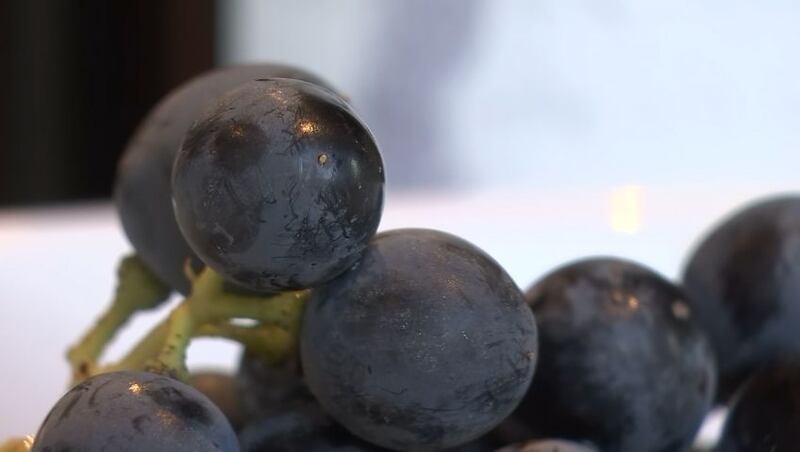The wildfire smoke that blanketed Washington state could bring another major toll — this time to grape farmers and winemakers in the state.
The concern is if smoke got into the grapes, it creates a potential for millions of dollars in ruined wine.
The Washington Winegrowers Association is already asking for relief from Congress. So far, most winemakers in Washington said this season’s grapes taste excellent and are optimistic that wine quality would most likely not be impacted by the smoke, but they acknowledge there is a risk.
At Gorman Winery in Maltby, just-harvested grapes are being crushed and beginning to undergo the process of being converted to wine.
“Today, we are processing 35 tons of grapes,” said Chris Gorman, owner of Gorman Winery.
But this year, the grapes are also getting tested for smoke taint.
“It is a concern. It’s just been bad news after bad news this year. After tasting some of the grapes early on, I was like, ‘This is going to be fantastic.’ But then the smoke rolls in,” Gorman said.
Smoke choked Washington for more than a week, first from eastern Washington wildfires and then from fires in Oregon and California.
That actually has winemakers here feeling optimistic.
“They’re calling it old smoke — smoke that’s traveled 2,000 to 3,000 thousand miles to get to us. At that point, it doesn’t have a lot of phenols,” Gorman said.
“There is testing on the grapes for potential for smoke taint. Most farmers I’ve talked with have had minimal, if any, tracible chemical,” he said.
Experts said the bulk of the smoke coming from far distances should mean less impact for Washington vineyards and grapes. But the true toll can only be determined after fermentation is complete.
Right now, they know the fresh fruit shows a great — if smaller — harvest.
“This is some of the best fruit I’ve tried so far, and they look gorgeous,” Gorman said.
Grape crushing is underway! 🍇 🍷 The concern - wildfire smoke that choked the west coast may impact the wine.
— Deedee Sun (@DeedeeKIRO7) September 22, 2020
Grapes taste fantastic, but there’s a small chance unwanted ashy smoke flavor could come through after fermenting or aging.
WA winemakers are very optimistic!#KIRO7 pic.twitter.com/NjQWSTxdAi
The problem is that smoky flavor — and not the good kind — can stay hidden until after the fermentation process or even longer.
“It would be more like a campfire type experience,” said Scott Moeller, winemaker at Novelty Hill-Januik in Woodinville.
Now they’re moving forward cautiously and are in the process of doing 15 micro-fermentations. Each bottle is made from grapes harvested from a different vineyard in eastern Washington.
“Just sampled 20 pounds of grapes from each block,” Moeller said.
They’re sending samples to a lab to determine exactly how the smoke may have impacted this wine.
“We can make decisions off of that. Taste can help, smell can help but, essentially, we need those number,” Moeller said.
He said farmers are also optimistic that there will not be any impact. And if there were, they might need to treat the wine. “There are methods people can take, steps people can take to remove some of that smoke taint if you will. We’ll just have to proceed forward — make the best decisions we can as winemakers,” he said.
The Washington Winegrowers Association and other groups across the West Coast have already sent a letter, asking Congress for relief. They say the wildfires and smoke could create a situation of unprecedented economic loss, but note the loss might not be fully felt for years.
Gorman Winery stated in a worst-case scenario — in the unlikely case the “smoke taint” flavor comes through with aging —they won’t sell the wine. But he said based on the harvest, they’re hopeful.
“If the wine tastes anything like the grapes, it’s going to be a fantastic year,” Gorman said.
Initial results after the first fermentation will be ready in about a week, but the final test will be once the wine is done aging — in 18-24 months.
Cox Media Group








